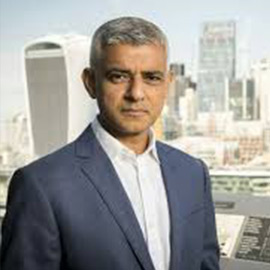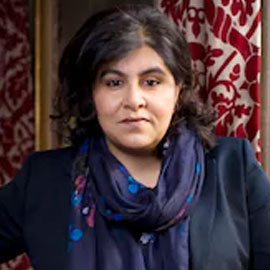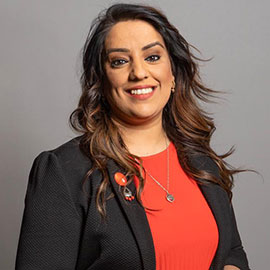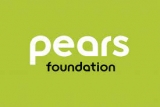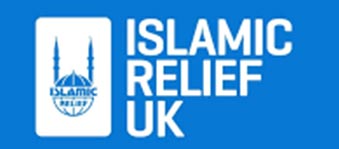Remembering Ethnic Minority Femicide Victims
|
Download PDF
3 December 2021 Media Statement Remembering Ethnic Minority Femicide Victims Muslim Women’s Network UK (MWNUK) has launched a remembrance page, Say Her Name, with an accompanying short film, in memory of the many women from racialised minority communities who have been killed in the UK, particularly in the last few decades. It is not an exhaustive list as the names are based on information found online, which means the actual numbers are likely to be higher. Most of the women have been killed or allegedly murdered (where ongoing cases are concerned) by a male partner or family member or person known to them. We felt it was important to create a separate list for ethnic minority women because when highlighting violence against South Asian, Black, Arab and other ethnic minority women and girls, there is a tendency to mainly focus on abuse related to culture such as honour based violence, forced marriage and female genital mutilation. The numbers being harmed and killed due to domestic abuse tends to be overlooked. Shaista Gohir OBE (Co-Chair of MWNUK) said: “Although it’s impossible to say with any certainty whether femicide affects racialised minority communities more than majority white communities, in some years, it does appear that the domestic femicide rates are higher. For example, of the 139 femicides in 2013, according to our list (which we know is not exhaustive) 28% (39) were ethnic minority women but only make up 14% of the population. A further breakdown of the statistics reveals that 17% (24 women) were South Asian despite only being around 7% of the population." She added: "I wonder whether the spike in the femicide rate in 2013 is linked to the change in immigration rules that occurred for those on spousal visas. In 2012, the qualifying period for applying for ‘indefinite leave to remain’ changed from two years to five years. Did female spouses from abroad feel not able to leave abusive relationships due to their immigration status being insecure for longer? Although the Destitute Domestic Violence Concession policy was also introduced the same year, (which would have allowed access to public funds), its awareness may have taken time to filter through. This policy has clearly been saving lives. Also, British women who were married to male spouses from abroad may have been pressured by their families to remain in abusive marriages so as not to jeopardise their immigration status.” The femicides rates were also higher in 2018 where of 154 women killed, 27 (17.5%) were ethnic minority women. Although there are no clear explanations for this, questions do arise whether sufficient specialist support is available, whether police responses are satisfactory, and whether there is sufficient awareness of the rates of domestic abuse and femicide within these communities. More robust data is also needed to ensure these groups receive sufficient attention. For example, FOI requests to the police often reveal there is inconsistency in the way that UK police forces assign ethnicity classifications. Ends 1. For further media comments, contact Shaista Gohir (Co-Chair) on contact@mwnuk.co.uk 2. Say Her Name page can be found here: https://www.mwnuk.co.uk/say-her-name 3. Say Her Name video can be found here: https://www.youtube.com/watch?v=spYtz7kDmmY 4. MWNUK stands in solidarity with the existing #SayHerName movement such as the campaign by Women’s Aid which highlights femicides in the UK and the original US social movement that seeks to raise awareness of black female victims of police brutality. 5. We are using the term “racialised minority communities” to acknowledge that Black and Asian people, and people from other minority ethnic communities (often termed “BAME”) are not a homogeneous group. In addition, we recognise that they are being categorised and treated in a particular way in terms of race (real or imagined physical characteristics such as skin colour) within a system where ‘whiteness’ is considered the norm. The term “racialised” does not define people’s community or identity, but the social processes to which they are subjected. We use the term minority in terms of population size where minorities in the UK constitute smaller numbers than white populations taken as an aggregate group. We have used the categories as found in the UK Census but recognise the challenges and confusion of categorising ethnicity and nationality and appreciate that the women listed may have identified themselves differently. Our intention in including ascribed ethnicities is to further highlight the lived experiences of women from racialised minority communities. 6. Further information about Muslim Women, Network UK which is a national charity based in Birmingham to advance equality and social justice for women and girls can be found on its website: https://www.mwnuk.co.uk 7. The charity also operates a national helpline, Muslim Women’s Network Helpline, https://www.mwnhelpline.co.uk where two thirds of the calls received are about various forms of abuse with the top one being on domestic abuse. 8. The charity also operates an online member platform to share content, Muslim Women’s Network Hub, https://www.mwnhub.com |
|



